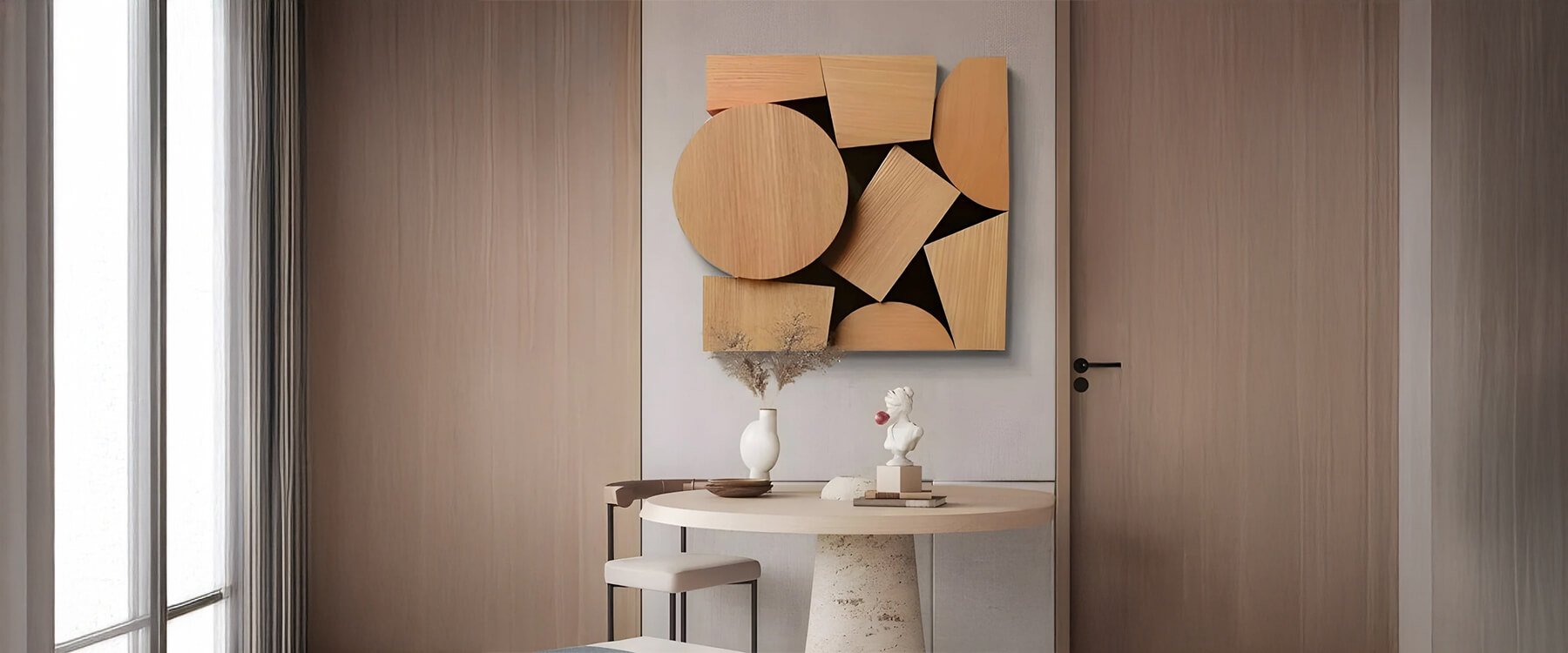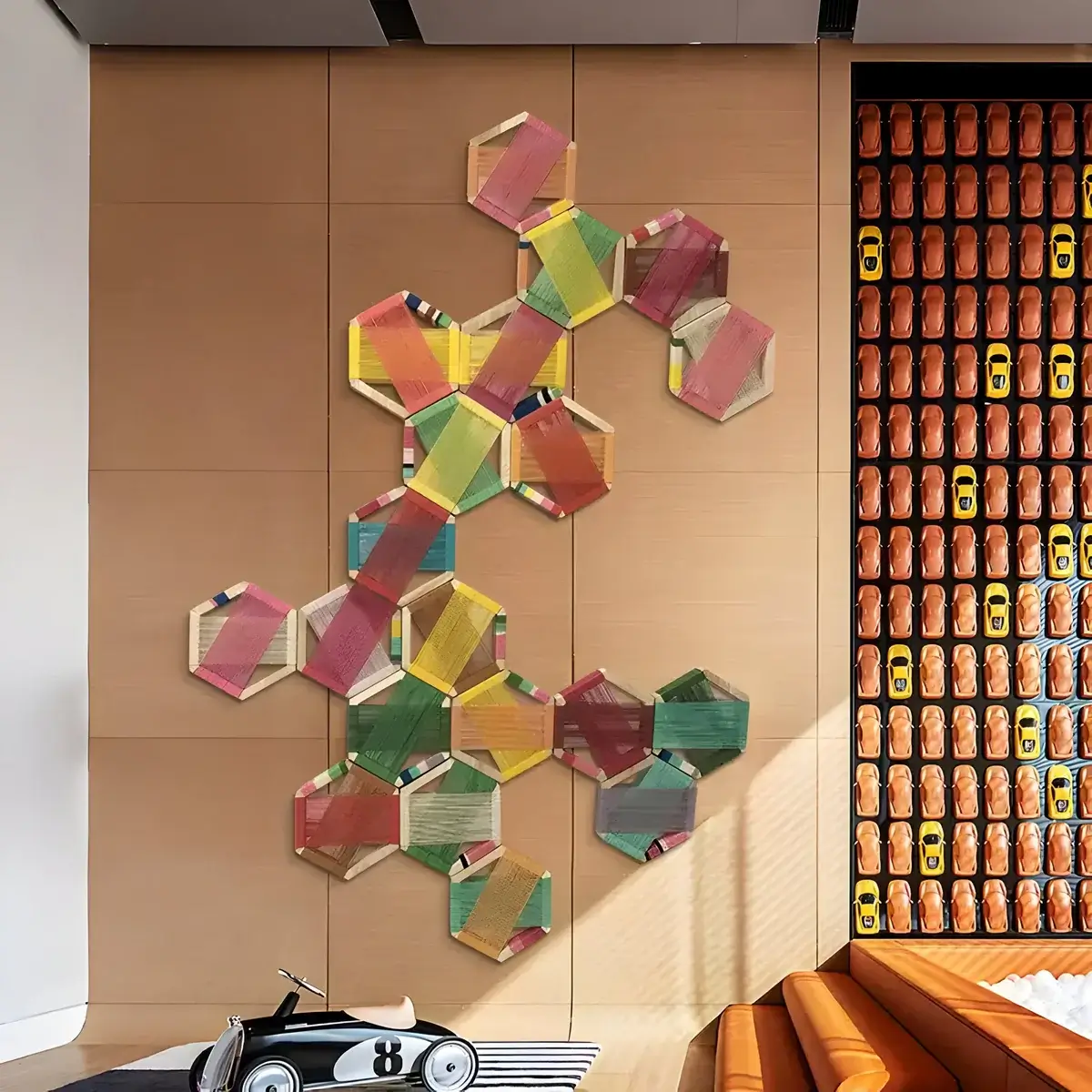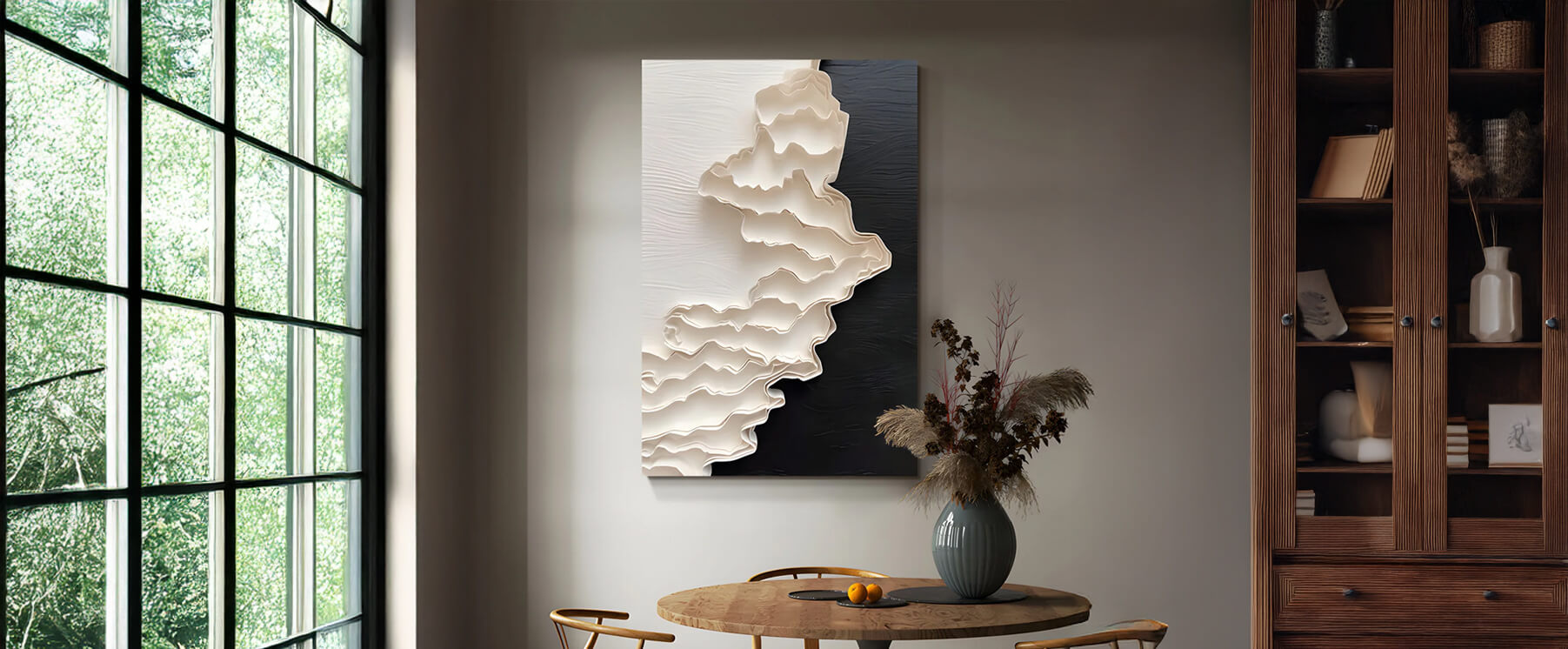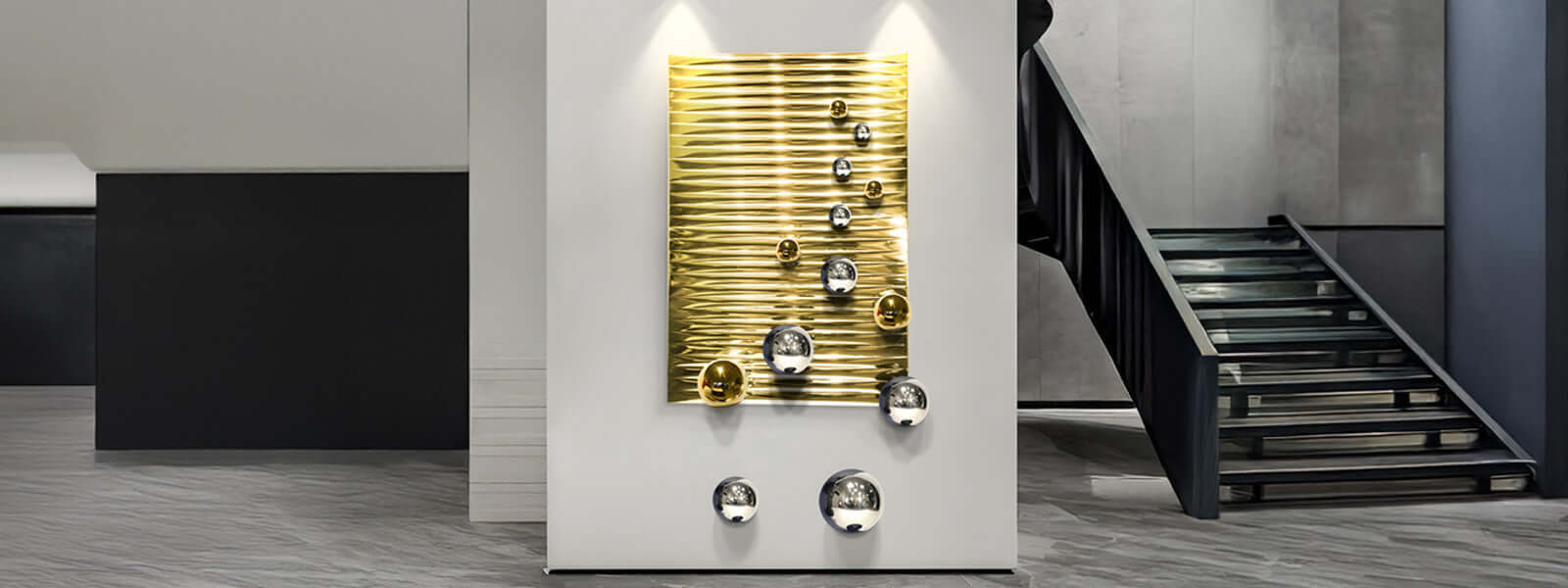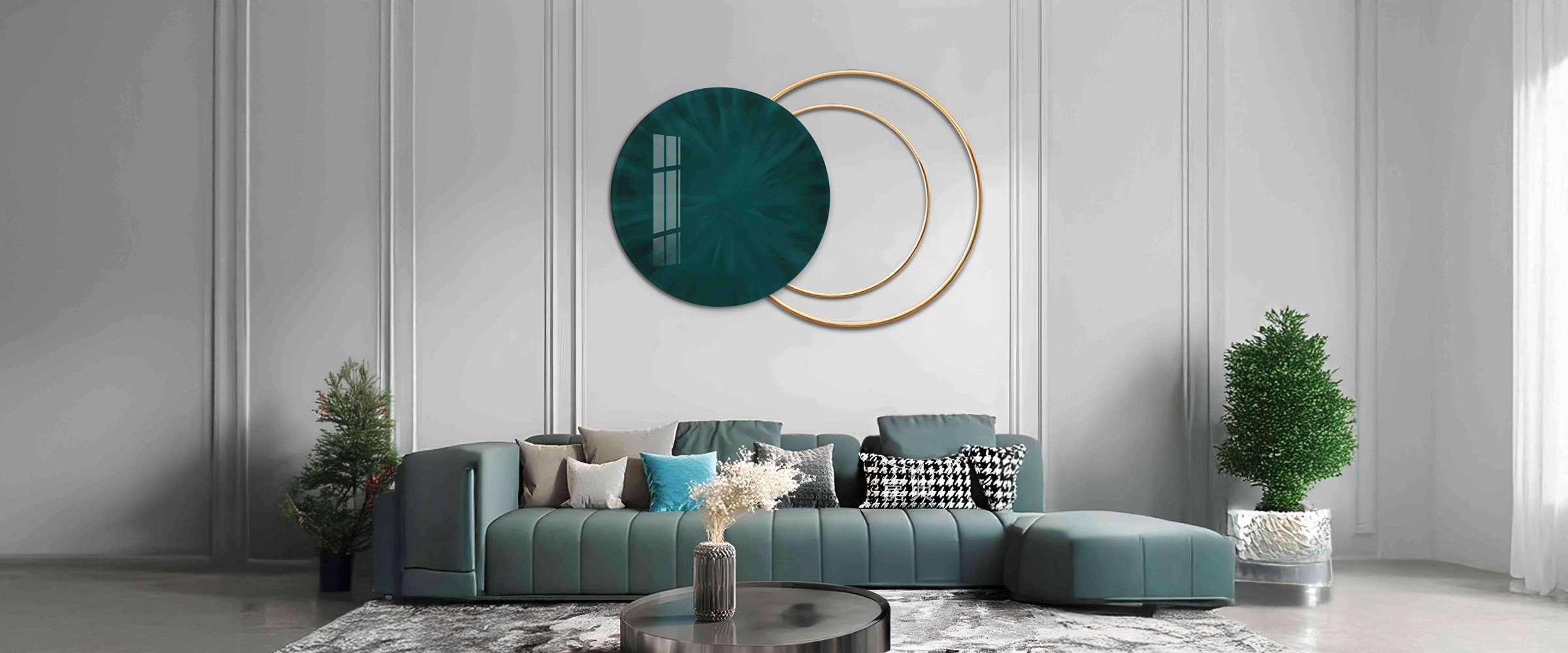Introduction
Wood art has long been a staple in home decor, bringing warmth, texture, and character to any space. Its versatility allows it to complement a variety of design styles, from the raw, organic appeal of rustic interiors to the clean, sophisticated lines of modern spaces. Crafted from reclaimed timber, intricately carved, or combined with other materials for a contemporary twist, woodwork art has the power to transform a blank wall into a striking focal point.
Choosing the right wood art for your home involves more than just selecting a visually appealing piece. Factors such as material combinations, size, color palette, and the function of the room all play a crucial role in ensuring a cohesive and well-balanced aesthetic. A rustic wood carving can enhance a farmhouse-style setting, while a geometric design creates a bold statement in a minimalist interior.
Rustic vs. Modern Aesthetics in Wood Art
Before selecting the perfect piece, it’s essential to understand the distinctions between rustic and modern woodwork art styles.
What Defines Rustic Woodwork Art?
Rustic woodwork art emphasizes natural textures, organic imperfections, and vintage appeal. These pieces often feature:
- Reclaimed or distressed wood with visible knots and grains.
- Hand-carved designs, often inspired by nature or traditional craftsmanship.
- Earthy tones that blend seamlessly with farmhouse, industrial, or bohemian interiors.
Rustic wood art pairs well with elements like sandstone, which enhances its organic aesthetic, or leather details that add a touch of sophistication.
Characteristics of Modern and Minimalist Wood Art
Modern woodwork art takes a more refined approach, focusing on simplicity, clean lines, and geometric patterns. Key characteristics include:
- Smooth finishes and polished surfaces.
- Abstract or minimalist designs with a focus on symmetry.
- The integration of mixed materials like acrylic, canvas, and LED & neon for a contemporary edge.
Key Considerations When Choosing Wood Wall Art
To ensure your wood art complements your space, consider the following factors:
1. Style and Theme
The first step in choosing woodwork art is determining the overall style of your space. Do you prefer rustic, contemporary, or eclectic decor? If your space has a traditional farmhouse feel, distressed wood pieces will enhance the aesthetic.
2. Size and Scale
Selecting the right size is crucial for creating balance in your room. Large wooden artwork pieces make bold statements in living rooms or above fireplaces, while smaller, intricately detailed designs work well in compact spaces like entryways or bedrooms.
3. Colour Palette
Your wood art should complement your existing colour scheme. Light wood tones work well in Scandinavian or boho-inspired spaces, while dark-stained or black-painted wood art suits industrial or minimalist settings. To create contrast, consider pieces with sandstone or leather accents that add depth and texture.
4. Room Function
Each room serves a different purpose, and the wooden artwork you choose should align with the space’s function:
- Living Room: Statement woodwork art that blends canvas or acrylic adds personality and depth.
- Bedroom: Soft, natural finishes with carved or layered textures create a calming ambiance.
- Office: Geometric or abstract wooden artwork featuring LED & neon can add modern sophistication.
5. Budget and Material Choices
While solid wood art can be an investment, combining wood with alternative materials like canvas or acrylic offers a budget-friendly yet stylish alternative. For a premium feel, leather and sandstone details elevate the piece’s overall aesthetic.
Popular Combinations for Wood Art
Blending wood with other materials creates striking, multidimensional designs that suit a variety of interior aesthetics. Below are some of the most popular woodwork art combinations and how they can elevate your space.
Wood and Acrylic Art: A Fusion of Organic and Modern
Wood and acrylic create a stunning contrast by merging the warmth of natural materials with the sleekness of contemporary design. Acrylic is often used in woodwork art as:
- A glossy overlay on wood engravings, enhancing intricate carvings with a polished finish.
- A transparent background that allows floating wood elements to stand out against the wall.
- A colour-infused accent where vibrant acrylic layers complement the wood’s earthy tones.
This combination is ideal for modern and minimalist interiors, where the clean, reflective nature of acrylic balances the organic feel of wood. It works exceptionally well in office spaces, contemporary living rooms, or entryways that need an artful statement.
Wood and Canvas Art: Depth and Artistic Expression
The combination of wood and canvas blends traditional and modern artistry, allowing for visually rich, textural pieces. Canvas serves as an excellent backdrop for wood carvings, painted designs, or layered wooden cut-outs. Here’s why this pairing is so popular:
- It allows detailed engravings or painted wood pieces to stand out against a soft, fabric-based background.
- Wood frames or cut-outs placed over a canvas painting add dimensionality, creating a shadow-box effect.
- The combination of hand-painted canvas with carved wood elements creates a rustic yet refined look, perfect for farmhouse, bohemian, or gallery-style decor.
Wood and canvas pieces work well in cozy living rooms, bedrooms, or hallway galleries where layers of texture add charm and artistic expression.
Wood and LED & Neon Art: A Contemporary Twist
For a modern, eye-catching statement, LED & neon elements can be incorporated into woodwork art, offering dynamic lighting and enhanced ambiance. This combination is frequently seen in:
- Geometric or abstract designs, where neon lights trace wood-cut patterns.
- Typography-based pieces, with neon lettering embedded within wooden panels for a vibrant, urban-inspired aesthetic.
- Backlit wooden engravings, where LED strips create a soft glow behind intricate wood carvings.
This pairing is perfect for industrial, urban, and contemporary interiors, especially in entertainment areas, bars, game rooms, or modern office spaces. The LED & neon glow adds movement and an interactive quality to static wood art, making it an attention-grabbing feature.
Wood and Leather Art: A Textured, Luxurious Feel
Leather introduces a tactile richness to woodwork art, making it a sophisticated addition to various decor styles. Subtly integrated or used as a primary design element, leather can:
- Be stitched onto wood panels, adding a handcrafted, artisanal touch.
- Serve as embossed or engraved inlays, incorporating fine detailing into the wood surface.
- Be used in layered designs, where wooden cut-outs overlay leather for a rustic or industrial look.
This combination is commonly found in vintage, Western, and luxury-inspired interiors, where warm, natural materials create a sense of refinement. Leather-accented wood art fits beautifully in library spaces, home offices, and upscale living rooms, adding a distinguished character.
Wood and Sandstone Art: A Natural, Organic Blend
For a design that leans toward earthy and nature-inspired aesthetics, sandstone and wood make a perfect duo. This combination offers:
- A harmonious blend of rugged and refined textures, with sandstone’s rough, grainy surface complementing the smoothness of polished wood.
- Layered compositions, where carved wood overlays or frames sandstone elements.
- Hand-etched or embedded designs, adding artistic depth through textural variation.
Sandstone and wood pair particularly well in Mediterranean, coastal, or desert-inspired homes, where natural materials take centre stage. Displayed in a sunlit foyer or as part of an accent wall, this combination brings a grounded, organic feel to any space.
Tips for Maintaining and Showcasing Your Woodwork Art
To keep your wood art looking its best, follow these care and display tips:
1. Cleaning and Preservation
- Dust wood art regularly with a microfiber cloth.
- Avoid direct sunlight, which can fade natural wood tones.
- If your piece includes leather, use a leather conditioner to prevent drying or cracking.
2. Display and Lighting
- Position woodwork art in well-lit areas but away from excessive humidity.
- If your piece features LED & neon, ensure proper wiring and avoid overheating.
- Use accent lighting to highlight textures and intricate carvings.
3. Mounting and Placement
- For heavy wooden artwork, secure it with wall anchors or professional mounting hardware.
- Create a gallery wall by combining wood art with canvas and acrylic pieces for a curated look.
Conclusion
Wood art offers endless possibilities for enhancing home decor, seamlessly blending rustic charm with modern elegance. Whether you're drawn to the raw, organic appeal of reclaimed wood or prefer contemporary designs, the right piece can transform any space. By carefully considering style, size, materials, and the function of each room, you can select wood art that not only complements your decor but also adds personality and depth.
Experimenting with different textures and material pairings - such as smooth finishes, layered carvings, or mixed-media designs - allows for a truly customized look. Additionally, incorporating thoughtful lighting, whether through strategic placement or the addition of accent lights, can further enhance the visual impact of your artwork.


































































